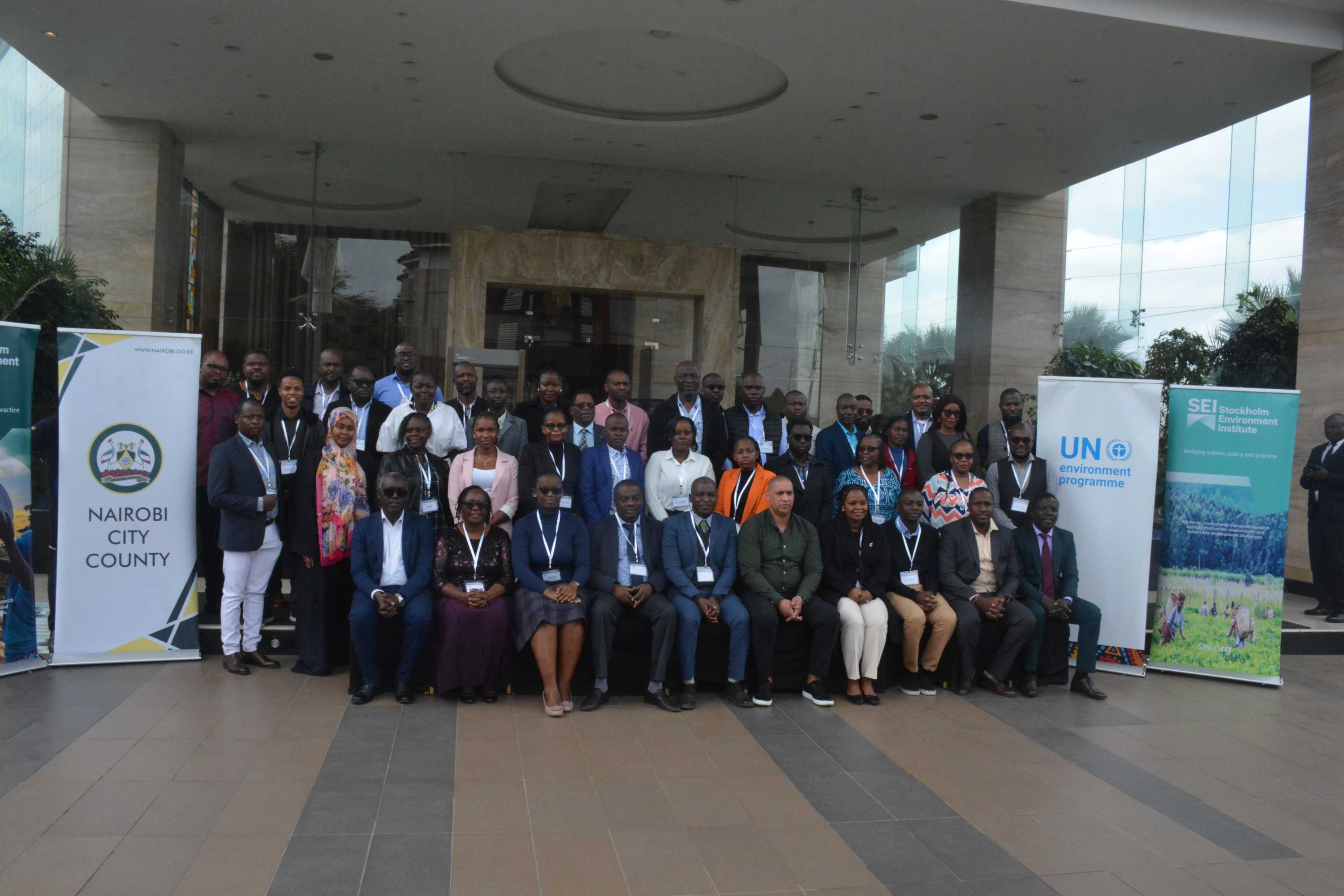
 Experts at the Nairobi forum on urban planning and climate resilience on July 21, 2025 / HANDOUT
Experts at the Nairobi forum on urban planning and climate resilience on July 21, 2025 / HANDOUTA severe shortage of accurate and comprehensive climate data is undermining efforts to make Nairobi and other African cities resilient to the impacts of climate change, experts from the Stockholm Environment Institute (SEI) have warned.
Presenting findings during a Nairobi forum on urban planning and climate resilience, SEI noted that without reliable data, urban planners are struggling to develop effective strategies to protect vulnerable populations from worsening climate risks.
“Lack of or inadequate climate data is a major barrier in delivering climate-resilient cities in Africa,” the SEI report stated.
The warning comes amid rapid urbanisation across the continent.
Africa’s urban population has soared from 31 per cent in 1990 to 54 percent in 2020, with Nairobi emerging as a major economic and social hub.
However, this growth has been accompanied by sprawling informal settlements, growing poverty, and increasing inequality—conditions that heighten the risks of climate-related disasters.
Romanus Opiyo, a researcher with SEI, said the growing impacts of climate change—such as extreme weather events and deteriorating air quality—are being felt most acutely in African cities, yet the ability to respond is limited by poor data infrastructure.
“Climate data needs to guide both formal and informal processes in planning and designing out climate hotspots,” Opiyo said.
Nairobi’s air pollution, driven by traffic emissions, industrial activity, and waste burning, was highlighted as a major environmental and health concern.
The report stressed the importance of aligning urban development with both climate and public health objectives.
“Scientific research and policy intervention are critical in addressing climate change-health nexus challenges,” it added.
SEI recommended integrated planning approaches that factor in both pollution and climate vulnerabilities.
Innovative solutions such as citizen science and participatory planning frameworks were proposed to bridge the data gap and bring community voices into the conversation.
Tools like the Urban ToolBox—a resource platform developed to support inclusive urban planning—were presented as ways to equip local stakeholders with the knowledge and tools needed to co-design climate solutions.
SEI also pointed to existing government programs such as the Kenya Informal Settlements Improvement Project (KISIP) and the Kenya Urban Support Programme (KUSP) as opportunities to embed climate considerations into mainstream urban development.
But the institute cautioned that without quality data, even well-intentioned programmes risk falling short.
“Addressing climate resilience can contribute to social inclusion among vulnerable transport users whose mobility is affected by extreme weather events,” the report noted.
The presentation concluded by urging stakeholders to consider key questions: What institutional frameworks are required for better coordination among city and health planners?
And how can the voices of disadvantaged communities be meaningfully included in urban planning and decision-making?
Experts at the forum agreed—data is the missing link.
Without improved systems for data collection, monitoring, and sharing, cities like Nairobi risk compounding existing inequalities and leaving millions exposed to the worsening threats of climate change.













